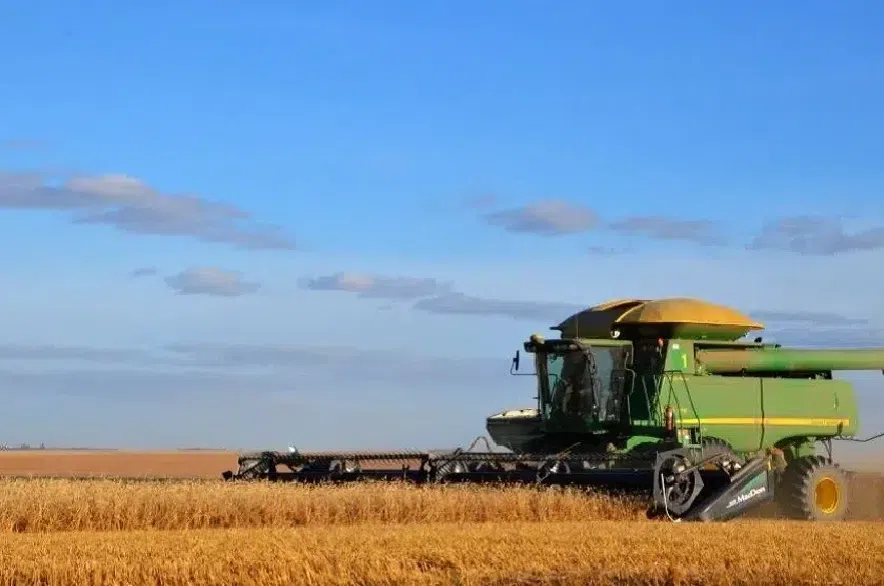Harvest is well underway in many parts of Saskatchewan, but dry conditions continue to cause headaches for many producers.
According to the weekly crop report from the Ministry of Agriculture, which covered the week ending Monday, pasture conditions in the province are getting worse due to the lack of moisture. While some rainfall in northern and eastern areas of Saskatchewan over the past week will help out later-seeded crops, the rain is coming too late to benefit some the earlier crops.
READ MORE:
- Strong crop for Sask. farmer but ‘prices are just in the toilet’
- SaskPower shares tips to help keep farmers safe during harvest
- Successful Open Farm Days showcases the best of Saskatchewan produce
Harvest is slightly ahead of schedule this season, the ministry noted, with about six per cent of the 2024 crop in the bin. That’s ahead the five- and 10-year averages, which both sit at five per cent.
In the southwest, where harvest has progressed the furthest, 16 per cent of the crop has been combined, while many producers haven’t started harvesting yet in the northwest and northeast.
Winter wheat and fall rye are furthest along, while only one per cent of canola and mustard crops have been harvested so far.
“With the overall dry conditions this past week, topsoil moisture conditions continue to diminish,” the report noted.
“Cropland topsoil moisture is currently 29 per cent adequate, 48 per cent short and 23 per cent very short. Hayland topsoil moisture is 24 per cent adequate, 47 per cent short and 29 per cent very short. Pasture topsoil moisture is 16 per cent adequate, 47 per cent short and 37 per cent very short.”
The dry conditions are also having an effect on ranchers, creating concern around livestock water supplies. About one per cent of livestock water supplies are severely short across Saskatchewan, while 31 per cent were moderately short and 22 per cent expected to be short of water “in the next couple months.”
“When asking producers if they are concerned about water availability on their farm, 77 per cent indicated they aren’t concerned while 23 per cent said they are,” the report read.
Harvest is a busy and difficult time for many producers, but the report emphasized that safety should always come first, particularly when heavy equipment is involved. SaskPower shared tips to help producers avoid coming into contact with power lines this week, and the Farm Stress Line is available for those struggling with the stress of harvest.











